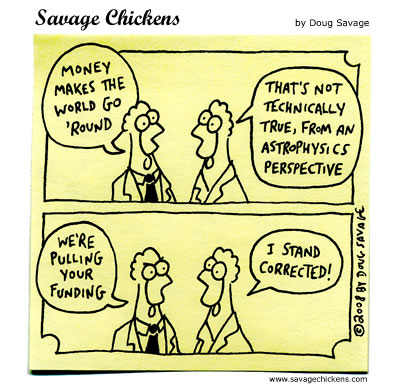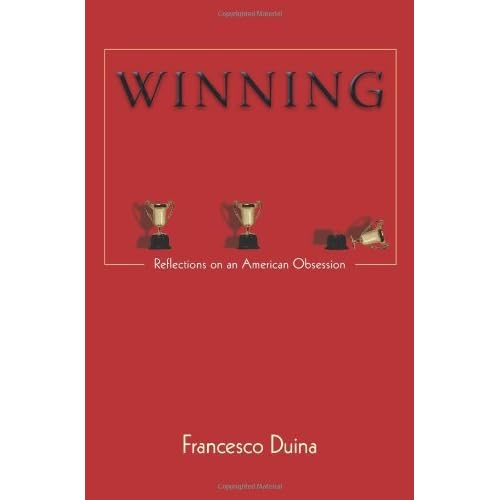
From: "
THE LEADING EDGE" Feb. 1983 M. King Hubbert: Science's Don Quixote ... (Published By: Society of Exploration Geophysicists (Pg.22)):
Hubbert first joined SEG in 1945 and quickly became an active member. He has served on the standing committee geophysical education, the standing committee on publications, and as editor of Geophysics (1947-49).
Hubbert has had serious health problems for several years... But, neither his ailments nor the recent adulation have eroded his zest for intellectual combat. In recent years, he has assaulted a target which he labels the culture of money that is gigantic event by Hubbert standards. His thesis is that society is seriously handi-capped because its two most important intellectual underpinnings, the science of matter-energy and the historic system of finance, are incompatible. A reasonable co-existence is possible when both are growing at approximately the same rate. That, Hubbert says, has been happening since the start of the industrial revolution but it is soon going to end because the amount the matter-energy system can grow is limited while money's growth is not.
"I was in New York in the 30's. I had a box seat at the depression," Hubbert says. "I can assure you it was a very educational experience. We shut the country down because of monetary reasons. We had manpower and abundant raw materials. Yet we shut the country down. We're doing the same kind of thing now but with a different material outlook. We are not in the position we were in 1929-30 with regard to the future. Then the physical system was ready to roll. This time it's not. We are in a crisis in the evolution of human society. It's unique to both human and geologic history. It has never happened before and it can't possibly happen again. You can only use oil once. You can only use metals once. Soon all the oil is going to be burned and all the metals mined and scattered."... That is obviously a scenario of catastrophe, a possibility Hubert concedes. But it is not one he forecasts. The man known a pessimist is, in this case, quite hopeful. In fact, he could be the ultimate utopian. We have, he says, the necessary technology. All we have to do is completely overhaul our culture and find an alternative to money. We are not starting from zero, he emphasizes. We have an enormous amount of existing technical knowledge. It's just a matter of putting it all together. We still have great flexibility but our maneuverability will diminish with time.
A non-catastrophic solution is impossible, Hubbert feels, unless society is made stable. This means abandoning two axioms of our culture the work ethic and the idea that growth is the normal state of affairs. Hubbert challenges the latter mathematically and concludes the exponential growth of the last two centuries is the opposite of the normal situation "It is an aberration. For most of human history, the population doubled only once every 32,000 years. Now it's down to 35 years. That is dangerous. No biologic population can double more than a few times without getting seriously out of bounds. I think the world is seriously overpopulated right now. There can be no possible solutions to the world's problems that do not involve stabilization of the world's population."
Hubbert's ideas about work are even more heretical. Work is becoming, he says, increasingly unimportant. He thinks it is conceivable that the future work week might be on the order of 10 hours. Indeed, because production will have to be limited by increasingly limited mineral resources that might be inevitable. And that, Hubbert stresses, could be the foundation of an earthly paradise...Most employment now is merely pushing paper around, He says. The actual work needed to keep a stable society running is a very small fraction of available manpower.
The key to making this cultural alteration is to come up with limitless supply of cheap energy. Hubbert feels the answer is obvious solar power and he does not feel more technological breakthroughs are needed before it can be made universally available. His faith is not that of a kneejerk trendy but that of a doubter who did much studying before his conversion. Fifteen years ago I thought solar power was impractical because I thought nuclear power was the answer. But I spent some time on an advisory committee on waste disposal to the Atomic Energy Commission. After that, I began to be very, very sceptical because of the hazards. That's when I began to study solar Power. I'm convinced we have the technology to handle it right now. We could make the transition in a matter of decades if we begin now.
Solar power is limited by astronomic time but not in human time frame. It's been there for billions of years and it will be going on for billions of years after we're gone. It also has another great advantage over conventional sources -- once the system is in place it is permanent. All that's required to keep it going is routine maintenance.
Harnessing an infinite supply of cheap energy is the key to Hubbert's technate, because of the leisure time it would generate. Look at the people who did remarkable things in the past. The Greeks. The English of a century ago. What did they have in common? They were highly educated and had a lot of leisure time. Of course not everyone with that combination did remarkable things, but the people who did do remarkable things generally had that combination.
In both cases, though, the opportunities for intellectual greatness were limited to a very few. The intellectual life of Greece was made possible because it was a slave society. England's was supported by great masses that lived in terrible poverty. But if the sun is conquered, education and leisure could be universal. It could result in the greatest intellectual renaissance of all time, Hubbert says.
His nominees for the leadership role in making this cultural change? His earth science peers... Intellectual leadership is, he says, their natural function.
A handful of men like Hutton, Lyell, and Darwin (1780-1880) changed the world. They gave us a geologic view of history instead of a Biblical view.
In the second stage, from 1880 until now, earth scientists became utilitarian and concentrated mostly on the search for ores, metals and fossil fuels. They did very little thinking about the broader subjects.
Now is the start of the third phase when the world is heading into intellectual turmoil... It needs guidance. The knowledge essential to competent intellectual leadership in this situation is pre-eminently geological "a knowledge of the earth's mineral and energy resources." The importance of any science, socially, is its effect on what people think and what they do. It is time earth scientists again become a major force in how people think rather than in how they live.
If Hubbert is right about man being on the brink of an unparalleled crisis, then men are going to have to make fantastic decisions “species-wide decisions" imminently.
This ability to make people, particularly the right people think, will be of inestimable worth. It may be Hubbert's greatest legacy.
 Slate | If your home was hit by a 9.0-magnitude earthquake, a tsunami, and radiation from a nuclear power plant, you'd be forgiven for not remaining calm. Yet that's what many Japanese quake victims appear to be doing. People are forming lines outside supermarkets. Life is "particularly orderly," according to PBS. "Japanese discipline rules despite disaster," says a columnist for The Philippine Star.
Slate | If your home was hit by a 9.0-magnitude earthquake, a tsunami, and radiation from a nuclear power plant, you'd be forgiven for not remaining calm. Yet that's what many Japanese quake victims appear to be doing. People are forming lines outside supermarkets. Life is "particularly orderly," according to PBS. "Japanese discipline rules despite disaster," says a columnist for The Philippine Star.

















